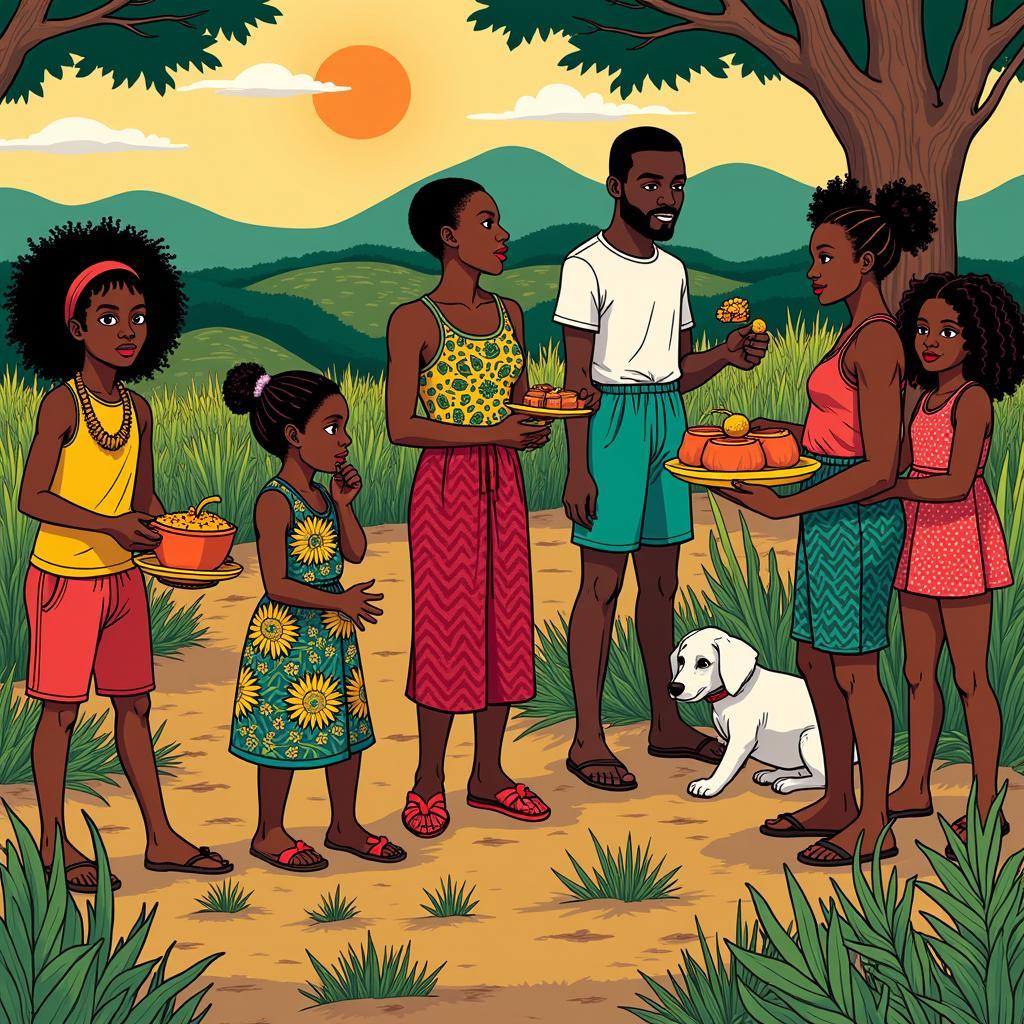Understanding Women’s Roles in Traditional African Societies
Women have always played, and continue to play, a vital role in the social, economic, and cultural fabric of African communities. Their contributions are diverse and often deeply interwoven with traditional customs and practices. Exploring these roles requires a nuanced understanding of the historical context and the significant regional variations across the vast African continent. It’s important to approach this topic with sensitivity and respect, acknowledging the complexities and avoiding generalizations.
The Economic Powerhouse: Women in Agriculture and Trade
Across many African societies, women have traditionally been the backbone of agricultural production. They are responsible for planting, harvesting, and processing crops, ensuring food security for their families and communities. From the rice paddies of West Africa to the maize fields of Southern Africa, women’s labor is essential. Their involvement extends beyond subsistence farming, often encompassing entrepreneurial activities like trading agricultural produce in local markets. This economic power contributes significantly to household incomes and community development.
In some communities, women also hold prominent roles in other economic sectors, like fishing, pottery, and textile production. Their skills and knowledge are passed down through generations, preserving cultural heritage while contributing to economic stability. For example, the intricate weaving traditions of the Ashanti people in Ghana are predominantly carried out by women, showcasing their artistic talent and economic contribution.
Guardians of Culture and Tradition: Women as Educators and Storytellers
Women are often the primary caregivers and educators within their families and communities. They transmit cultural values, traditions, and knowledge to younger generations through storytelling, songs, and everyday practices. This role is crucial for maintaining cultural identity and ensuring the continuity of traditions across generations. They are the keepers of ancestral knowledge, passing down oral histories, traditional medicine, and social customs.
 Women Sharing Stories Around a Campfire
Women Sharing Stories Around a Campfire
Navigating Social Structures: Women in Family and Community Life
Family structures and kinship systems vary significantly across Africa, influencing women’s roles and responsibilities within their communities. In some societies, lineage and inheritance are matrilineal, meaning they are traced through the female line. In others, patriarchal structures prevail, with men holding primary authority. Understanding these diverse social structures is crucial for analyzing women’s social standing and their influence within different communities.
Challenging Stereotypes and Embracing Change
It’s crucial to avoid generalizations about women’s roles in Africa. The diversity across the continent is immense, and experiences vary widely based on factors such as region, ethnicity, social class, and historical context. Modernization and globalization have also brought about significant changes in gender roles and expectations, creating new opportunities and challenges for women across Africa.
 Modern African Women in Business Meeting
Modern African Women in Business Meeting
Conclusion
Understanding women’s roles in traditional African societies requires a nuanced and respectful approach that acknowledges the diversity and complexity of the continent. Their contributions to economic life, cultural preservation, and social structures are essential and deserve recognition. By continuing to explore these diverse roles, we can gain a deeper appreciation for the rich tapestry of African Life and the significant contributions of women throughout history and into the future.
FAQs
- What is the most common role of women in African societies? The roles of women are diverse and vary significantly across different communities. However, their involvement in agriculture and as caregivers is prevalent across many societies.
- How have women’s roles changed in modern Africa? Globalization and modernization have brought about significant changes, creating new opportunities for women in education, business, and politics.
- Are all African societies patriarchal? No, diverse social structures exist across Africa, including matrilineal societies where lineage and inheritance are traced through the female line.
- How do women contribute to the economy in Africa? Women contribute significantly through agriculture, trade, and other economic activities, playing a vital role in household incomes and community development.
- What is the importance of women as storytellers in African culture? Women as storytellers play a crucial role in transmitting cultural values, traditions, and knowledge to younger generations, preserving cultural heritage.
- How can I learn more about the specific roles of women in a particular African country? Further research focusing on specific regions and ethnic groups can provide more detailed insights.
- What are some resources for understanding the diversity of women’s experiences in Africa? Academic journals, documentaries, and books by African authors offer valuable perspectives.
Need further assistance? Contact us 24/7: Phone: +255768904061, Email: [email protected] or visit us at Mbarali DC Mawindi, Kangaga, Tanzania.

